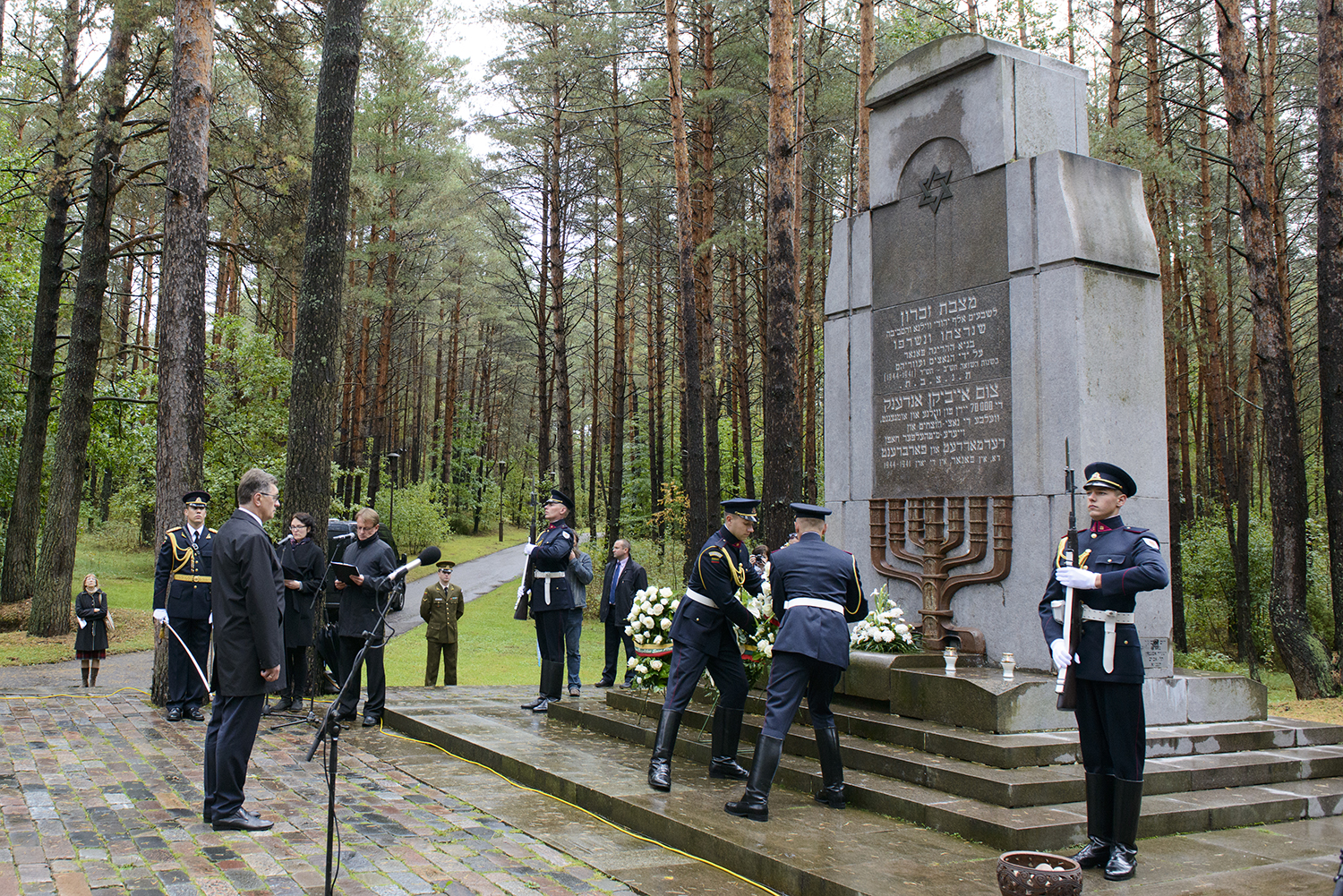Following the selection of the two best projects for renovating the Ponar (Paneriai) Memorial Complex, architects have been perfecting and putting the final flourishes on their plans for how the Holocaust site will look, and a special commission is supposed to make a decision by the end of the year.
Jūratė Razumienė, deputy director of the Vilna Gaon Jewish State Museum which is in charge of the memorial complex, told BNS that the project submitted by the Šnabždesių miškas [Forest of Whispers] group, chosen over sixteen other projects earlier, will compete with the Matyti tyloje [To See in Silence] group’s project.
“It was an idea project, not first or second, formally it only took third place. There was another project which was assessed the best by Lithuanian and foreign specialists. But not all questions were answered in any single project. The work will continue, they will both compete under additional conditions,” she said.
Museum director Markas Zingeris told BNS the commission for renovating the memorial complex is planning to award a prize of 17,000 euros to the winners in the near future.
Earth-scanning work to detect burnt or just buried human remains was completed last week. Results of the survey should be released within several weeks, after which the commission will present conditions to the architects and will indicate what is subject to being posted with signs, and will allow for the further preparation projects, the best of which is supposed to be selected this year.
Zingeris told BNS: “All locations there need to be marked wherever there might have been someone buried or someone shot. Probably nobody is able now to figure it all out, but they will see after the scanning, it will be marked. Actually the competition should be finished by New Year’s. Then the very best will be selected from which a technical project with blueprints for the architects will be made.”
Zingeris said two Jewish experts had joined the judging commission made up of representatives from the Government, the Ministry of Culture, Association of Architects, the Vilnius municipality, the Lithuanian Jewish Community and the Goodwill Fund: Rabbi Andrew Baker, director of international affairs for the American Jewish Committee who frequently visits Lithuania, and Abraham Ginsberg, executive director of the Committee for the Preservation of Jewish Cemeteries in Europe.
The plan is to refurbish the memorial park complex over the next several years with funding by Lithuania and the European Union.
The memorial site dedicated to commemorating victims of the Holocaust and all victims of Naziism is a mass murder site and mass grave where mainly Jews were murdered by Nazis and Lithuanian collaborators from 1941 to 1944. Many of the victims were exhumed by the Nazis, burned and then reburied, but there are also unburnt human remains buried at the site.
In terms of number of Jews murdered, the Ponar site is the largest Holocaust mass murder site in Lithuania. Other victims murdered there include Red Army POWs, Polish victims and others.


